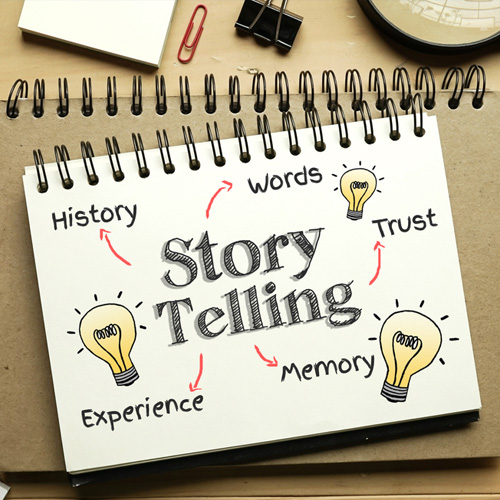The history, science and emotions of storytelling – from an expert’s perspective.

Storytelling is a powerful tool in marketing. From ancient myths and legends to modern-day advertising campaigns, stories have captured our attention and helped us connect with brands and products in a deeper way. But what is it about storytelling that makes it so effective? In this blog post, we’ll explore the history, science, and emotions behind storytelling from the perspective of an expert marketer.
History of Storytelling
Storytelling has been around since the dawn of humanity. In fact, some of the earliest known examples of storytelling date back to prehistoric times, when people would paint pictures on cave walls to tell stories about their lives, beliefs, and experiences. As civilization evolved, so did storytelling, with oral traditions and written narratives becoming a staple of human culture.
Marketing and advertising have also been using storytelling for centuries, from the famous print ads of the 1800s to the more modern television commercials and social media campaigns of today. The use of stories in marketing has proven to be incredibly effective, with studies showing that consumers are more likely to remember and connect with a brand that tells a compelling story.
Science of Storytelling
So, what is it about stories that make them so effective in marketing? It all comes down to how our brains are wired. Our brains are hardwired to seek out and process stories, which is why they can be such a powerful tool for marketing.
When we hear a story, our brains release dopamine, a chemical that is associated with pleasure and reward. This chemical reaction makes us feel good and helps us to remember the story better. Additionally, stories activate more areas of the brain than simply presenting facts or data, making them more memorable and impactful.
Emotions of Storytelling
Stories also evoke emotions, which is a key element in marketing. By telling a story that resonates with your audience emotionally, you can create a deeper connection with your brand or product.
Emotions are powerful drivers of behavior, and studies have shown that people are more likely to purchase when they feel an emotional connection with a brand. By using storytelling to tap into your audience’s emotions, you can create a stronger bond between your brand and your customers.
In conclusion, storytelling has a rich history and plays a key role in marketing. By understanding the science behind why stories are so effective and tapping into the emotional power of storytelling, marketers can create more memorable and impactful campaigns. So, the next time you’re developing a marketing strategy, consider how you can use the power of storytelling to connect with your audience and build a stronger brand.

Negative Advertising: Brands In Attack Mode
Most often, advertisers put a positive foot forward. They spend their marketing dollars extolling the positive attributes of their brands

Mission Statements: Oh, for an Ounce of Inspiration
“We choose to go to the moon.” On September 12, 1962, President John F. Kennedy spoke six words that gave

Where’s Your Arena?: Looking For ROI In All The Wrong Places
On Union Square in the bustling metropolis of Manhattan, there’s an escalator that takes you up from the subway platform
